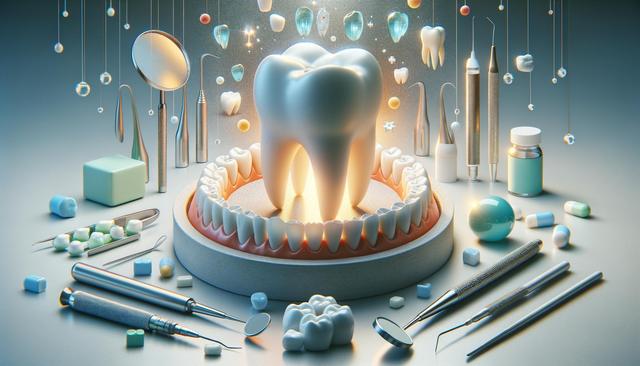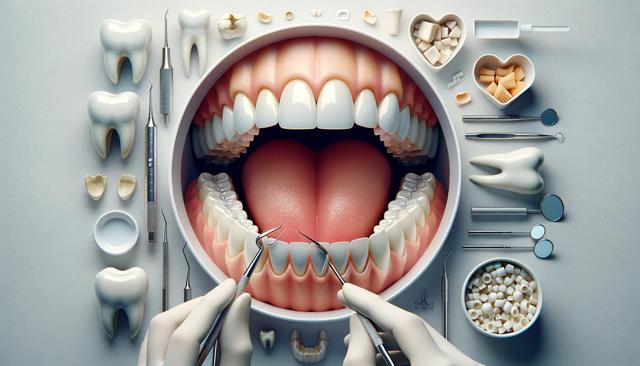Understanding the Purpose of Dental Implants Clinical Trials
Dental implants clinical trials are research studies designed to evaluate new methods, materials, or techniques related to dental implant procedures. These trials aim to improve the safety, effectiveness, and affordability of dental implants by testing innovations in real-world scenarios. Participants in these trials not only contribute to scientific knowledge but often gain access to advanced care under close supervision by dental professionals and researchers. Clinical trials may focus on various aspects such as bone grafting materials, implant surface designs, or even digital surgical planning tools.
The clinical trial process usually follows a structured format, often divided into phases:
- Phase I: Tests safety and identifies side effects with a small group.
- Phase II: Explores effectiveness and further safety evaluations.
- Phase III: Compares new methods with existing treatments in larger populations.
- Phase IV: Conducted after market release to monitor long-term outcomes.
Participation in these trials helps advance dental science while offering patients early access to potentially improved treatments.
Who Can Participate in a Dental Implants Clinical Trial?
Not everyone is eligible to participate in a dental implants clinical trial. Each study has specific inclusion and exclusion criteria designed to ensure patient safety and gather meaningful data. These criteria often relate to age, general health, oral health status, and the presence or absence of certain medical conditions. For instance, individuals with chronic illnesses that affect bone healing may not qualify for certain implant studies.
Common eligibility factors include:
- Being over a specific age (usually 18 or older)
- Missing one or more teeth and considering implant treatment
- Having sufficient bone density in the jaw
- Not currently pregnant or breastfeeding
- No history of uncontrolled chronic diseases
Before joining, participants undergo a comprehensive screening process. This typically includes dental examinations, medical history reviews, imaging tests, and consultations with the research team. Enrolling in a trial requires informed consent, ensuring participants understand the nature of the study, potential risks, and their rights during the research period.
Benefits and Risks of Joining a Clinical Trial
Participating in a dental implants clinical trial offers several potential benefits. One of the most appealing aspects for many patients is the possibility of receiving treatment at reduced or no cost, especially considering full mouth dental implant costs. Participants also receive close monitoring and care from experienced dental professionals, often using advanced technologies and techniques not yet widely available.
Benefits may include:
- Access to cutting-edge dental implant procedures
- Reduced treatment costs
- Personalized care and follow-up
- Contributing to scientific advancement
However, it’s important to weigh these benefits against the potential risks. Since clinical trials involve experimental procedures or materials, there may be unforeseen complications. These could include implant failure, unexpected side effects, or longer recovery times. Participants should feel free to discuss any concerns with the research team and are always allowed to withdraw from the study at any point.
How to Find a Dental Implants Clinical Trial
Finding an appropriate dental implants clinical trial requires research and consultation. Many universities, dental schools, and specialized clinics conduct ongoing trials. Reliable sources to locate these studies include government registries, dental research institutions, and professional dental associations. Online databases also allow prospective participants to search for trials by location, condition, and eligibility requirements.
Steps to find a suitable clinical trial:
- Consult with your dentist or oral surgeon for recommendations
- Search government clinical trial registries
- Contact local dental schools or teaching hospitals
- Use online platforms that list verified clinical trials
Once a potential trial is identified, reach out to the listed contact person to inquire about enrollment. Be prepared to share relevant medical and dental history and undergo a screening process. Keep in mind that not all applicants are accepted, as researchers must ensure safety and study integrity through strict eligibility criteria.
What to Expect During and After the Trial
Once enrolled in a dental implants clinical trial, participants follow a set treatment plan defined by the study protocol. This may include pre-treatment assessments, implant placement procedures, and regular follow-up visits. All steps are carefully documented to measure outcomes and detect any issues. The process is typically more structured than standard dental care, with frequent monitoring to ensure both safety and data accuracy.
During the trial, participants can expect:
- Regular check-ups and imaging to assess implant success
- Questionnaires to evaluate satisfaction and oral function
- Possible adjustments to treatment based on responses
- Communication with a study coordinator or research team
After the trial ends, patients may continue to receive follow-up care depending on the study’s design. Long-term monitoring helps researchers understand how well the implant performs over time. Participants should also receive a summary of the study’s findings, contributing to the broader knowledge base in dental implantology.
Conclusion: Making an Informed Choice
Dental implants clinical trials play a crucial role in shaping the future of oral rehabilitation. For individuals considering implants, joining a trial can be a valuable opportunity to access innovative treatments while contributing to dental research. However, it’s essential to thoroughly understand the process, eligibility, and potential risks before enrolling. By staying informed and consulting professionals, patients can make empowered decisions that align with their health goals and personal circumstances.


